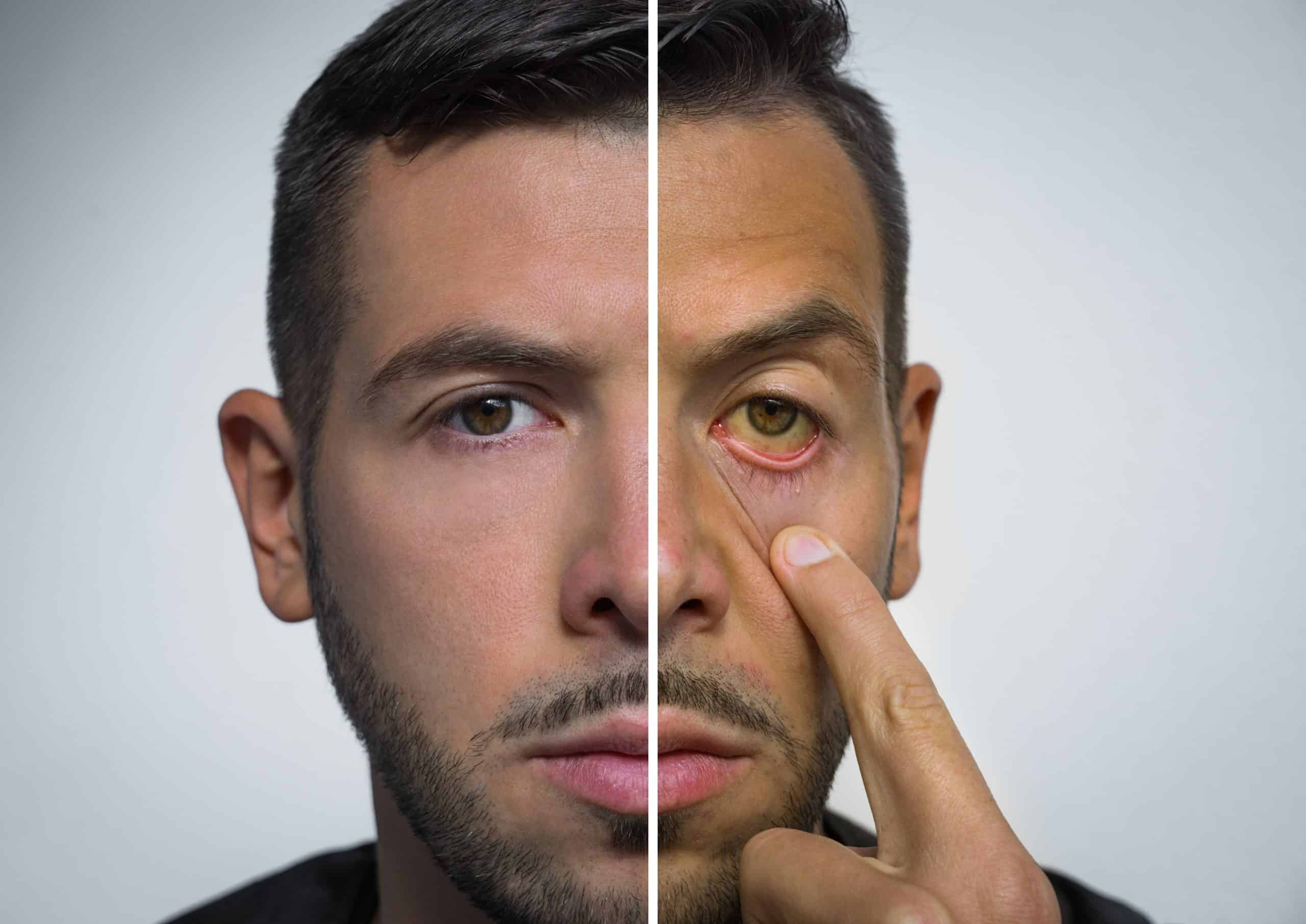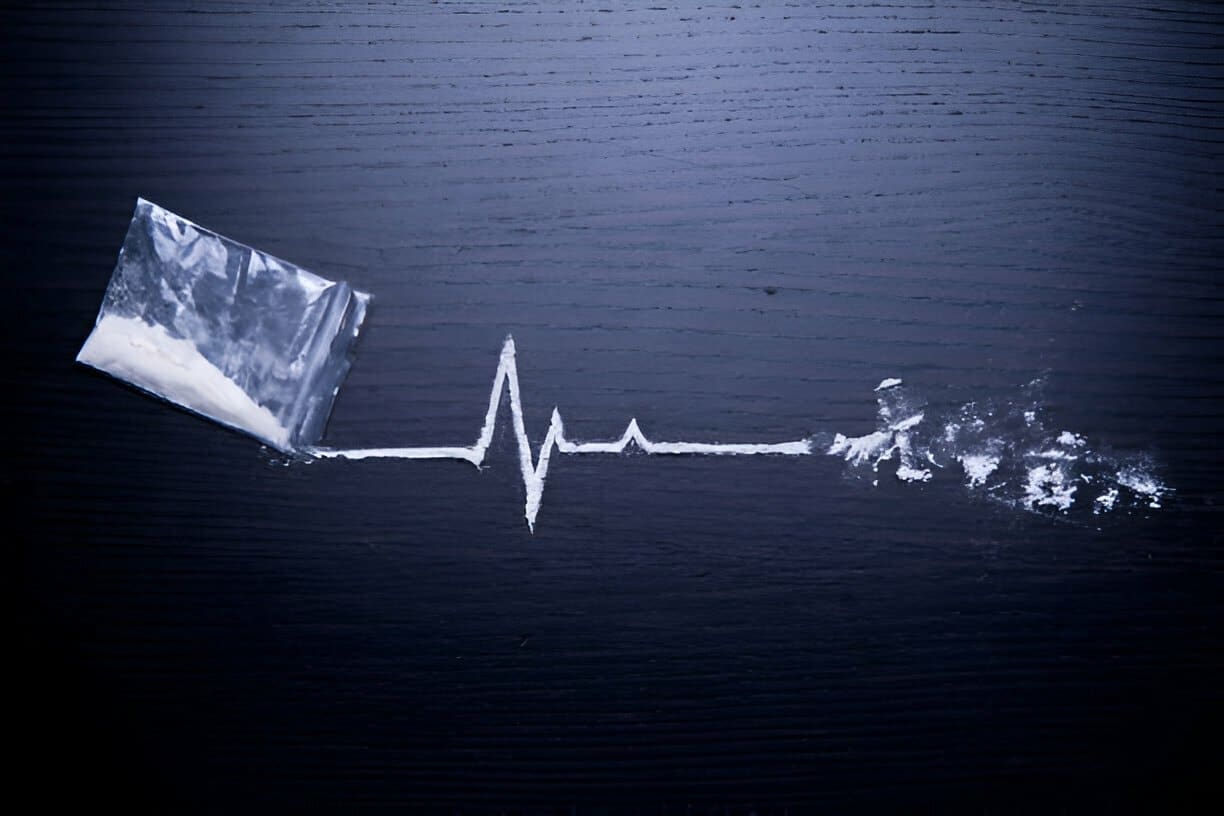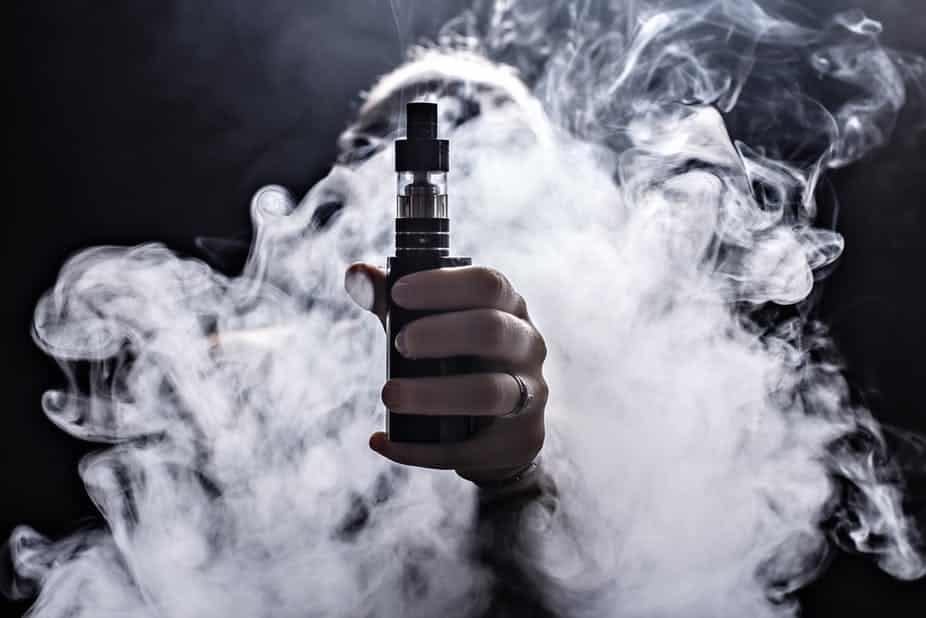Alcohol addiction, also known as alcohol dependency, is a mental and physical disorder marked by uncontrolled desires to use alcohol despite the harmful effects on one’s health, finances, and relationships. Alcoholism can be detrimental to one’s daily tasks since it alters the way the brain functions and makes it difficult to maintain control over desires.

Alcohol misuse isn’t always obvious, but if you’re drinking as a coping technique or avoiding feeling awful, you should immediately seek help from an addiction therapist, as you may have entered the dangerous ground. You may not realise you have a drinking problem until it is too late. Knowing when you’ve crossed a line is crucial to monitoring and reducing your intake. Understanding the issue can help you reduce or quit altogether before long-term consequences arise.
Alcoholism (also known as Alcohol Use Disorder – AUD) is a broad term that refers to any alcohol usage that results in physical, mental, or behavioural problems.
There are two types of alcohol use disorders: alcohol abuse and alcohol dependence. Drinking alcohol too much or too often or being unable to control alcohol consumption is described as alcohol abuse. An uncontrollable physical or mental craving for alcohol is classified as alcohol dependence. If you’ve developed any form of alcoholism, you’re likely to develop an enhanced tolerance, and when you quit drinking, you may experience withdrawal symptoms.
If your loved one needs support dealing with an Alcohol Addiction, contact us today on 0800 999 1083. We can help you by recommending treatment options.
Alcoholism can creep up on you, almost imperceptibly intruding into your life, and by the time it is recognised, the original triggers may seem irrelevant. Though several reasons might contribute to alcoholism, there are some common risk factors that almost all alcoholics share, and it is vital to consider them because understanding leads to treatment.
A considerable body of scientific evidence has accumulated to suggest that addiction can run in families in recent years. Children of alcoholic parents are four times more likely to have an alcohol problem later in life, than children of non-alcoholic parents. This is a complicated process, and there is no single ‘alcohol gene’ to blame. Instead, genetic variances mean that some people are more predisposed to alcoholism than others.
Although genetics account for nearly half of the risk of alcoholism, they do not convey the whole story. Although genetic history can be challenging to discern, if parents are habitual heavy drinkers or drink to relieve stress and melancholy, their children are likely to believe that these behaviours are normal and possibly harmless. Peer pressure from friends, colleagues, and spouses can also encourage new and problematic drinking practices, leading to dependency or co-dependency.
Others get dependent after going through a terrible moment in their lives. Drinking may appear to be an excellent way to cope in these situations, and patients may frequently use it as a “stop-gap” measure until their circumstances improve. However, as drinking influences relationships and responsibilities, and hangovers compound the stress that drinking was supposed to alleviate, the troubles can grow, prompting more drinking and creating a vicious cycle.
Alcoholics are more likely than the general population to suffer from psychiatric problems such as depression, anxiety, post-traumatic stress disorder, and psychosis. For these people, alcohol may be a do-it-yourself solution to their problem, and it may be helpful in controlling symptoms at first. Nonetheless, due to alcohol consumption, these issues will only get worse with time.
Based on the number of symptoms you encounter, your alcohol use disorder can be mild, moderate, or severe. The following are possible signs and symptoms:

When excessive and persistent alcohol use is abruptly discontinued or considerably decreased, alcohol withdrawal can occur. It can happen anywhere from a few hours to 4 to 5 days afterwards. Sweating, rapid heartbeat, hand tremors, sleeping problems, nausea and vomiting, hallucinations, restlessness and agitation, anxiety, and seizures are some of the signs and symptoms. The symptoms can be severe enough to make it difficult for you to function at work or in social circumstances.
Varied people have different levels of alcoholism. Although many patients have something in common, their experiences with alcohol may appear to be very different at first. This might make it difficult for people to recognise themselves as alcoholics, even though drinking destroys their relationships, health, and enjoyment of life.
Though alcoholism might manifest itself in various ways, the chemistry at its core is the same for everyone. Chemicals are essentially hijacking the brain, directing the mind’s focus to finding and drinking more alcohol. When harmful drinking behaviours are sustained over time, long-term electrical alterations in the brain occur, resulting in the obsessive attitude toward alcohol that characterises alcoholism.
It is a cliche, but the only way to be sure of avoiding alcohol use disorder is to avoid drinking. In the absence of abstinence, following government guidelines on weekly co consumption maximums, never drinking for more than three days in a row, and allowing yourself frequent periods of respite (“dry” months, for example) are all basic actions anyone can take to help ensure they do not become a problem drinker.
The early side effects of alcohol misuse include feelings of relaxation and reduced inhibitions, which develop into impaired coordination, reduced reflex and response time, and diminished focus. These rapid adverse effects can be amplified when alcohol is coupled with other mind-altering substances (legal and illegal narcotics, for example).
Alcohol abuse can cause a variety of adverse effects (including intoxication), depending on your physical condition and how much you’ve consumed:

Excessive drinking can impair judgement and lessen inhibitions, resulting in poor decisions and potentially harmful circumstances or behaviours, such as:
Drinking too much alcohol over time can lead to a variety of health issues, including:
Alcohol abuse alters the balance of chemicals in the brain, which causes the changes in thoughts, feelings, and behaviour that might occur as a result of drinking.

As a result, alcohol misuse is closely associated with mental health issues like anxiety and depression. However, while many people use alcohol to alleviate the symptoms of mental illness, the comfort is temporary.
Anxiety and despair are likely to worsen when the effects of alcohol wear off. Long-term alcohol consumption can intensify the symptoms. As a result, more alcohol is used in an attempt to self-medicate, and a vicious cycle of misuse begins.
If you think you drink too much alcohol on occasion, or if your drinking is causing problems for you or your family, speak with your health care practitioner or call an addiction specialist, as Compare Rehab UK. Other options for getting help include speaking with a mental health professional or joining a support group such as Alcoholics Anonymous or another self-help organisation.
Because denial is so frequent, you may believe you don’t have a drinking issue. You may be unaware of how much you drink or how many difficulties you have as a result of it. Pay attention when relatives, friends, or coworkers urge you to check your drinking habits or get treatment. Consider speaking with someone who used to have a drinking problem but has since quit.
Many people who have an alcohol use disorder are hesitant to seek help because they are unaware that they have a problem. Some people can identify and accept that they require professional help with the intervention of loved ones. If you’re concerned about someone who drinks excessively, seek assistance from a professional with experience in alcohol treatment.
Detox is usually followed by rehab in the treatment of alcoholism. What type of treatment you choose will depend on the severity of your condition, the amount of time you’ve been addicted, and your unique circumstances. Rehab may take place in an inpatient or outpatient facility, depending on your requirements and circumstances.
The NHS, charities, local support groups, and private clinics all provide help to
stop drinking. Private clinics often offer paid residential programmes, whereas the NHS, NGOs, and local support organisations typically offer free outpatient programmes.

The first stage of recovery is generally the most difficult. Alcohol does not easily release its grasp, and quitting ‘cold turkey‘ can be harmful. As a result, most alcohol recovery programmes begin with a ‘detox,’ which is usually a medically supervised detoxification treatment that safely removes dangerous chemicals from the body while also alleviating physical withdrawal symptoms. A medical expert may provide detox medication to help with the withdrawal process at this time.
Detox is for the body, but alcohol rehabilitation is for the mind. Alcohol misuse generates unique brain alterations. Unfortunately, the brain can alter, and as a result, the relationship with alcohol might vary dramatically. The road will be different for each patient, and treatment should be adapted accordingly.
A twelve-step programme is a set of 12 guiding principles used to help people recover from addiction. It has been adopted by various fellowships that cater to the needs of those suffering from substance misuse problems and, more recently, other behavioural issues. One of Alcoholics Anonymous (AA) founders established the 12 steps, which became the foundation of the organisation’s approach to supporting people in recovery from alcoholism.
Weekly meetings are usually held by 12-step organisations and are available to anyone committed to living a sober life. Meeting attendees can provide each other encouragement, advice, and companionship and assist one another in sticking to the 12 steps.
This tool will help you discover the negative attitudes and beliefs that have contributed to your self-destructive or harmful behaviours, including your alcohol use disorder. By learning to question destructive thoughts and developing healthy coping mechanisms, you can overcome several issues, including alcoholism and behavioural disorders. You and your therapist will work together to solve your problems, and you may be assigned homework to complete between sessions.
Don’t go through the process of recovery alone. Treatment providers can answer your questions. Get in touch with one today.
Call 0800 999 1083 today!
One-on-one counselling sessions with a therapist are one of the most essential parts of treatment. These sessions can happen once a week or multiple times a day. Your counsellor will talk to you about your progress, answer any questions regarding your condition, and offer you feedback on your actions.
Counsellors are critical in assisting patients in developing coping skills, adopting new behaviours, and learning to recognise triggers and avoid circumstances where they might relapse.
Individual treatment sessions and group therapy sessions are very similar. The critical distinction is that you meet with multiple people simultaneously. As a result, you can simultaneously talk about your issues with numerous people. This allows you to see things from different angles.

Group therapy sessions are helpful for dealing with specific difficulties that require the participation of multiple people. If you also suffer from depression, group therapy may benefit your alcohol outpatient treatment. You are free to express your emotions without fear of offending someone else’s feelings. Group treatment isn’t always essential, though. While one-on-one counselling may be sufficient, joining a UK addiction treatment group may be very helpful if you’re having problems obtaining support from your family or friends.
Participating in a family programme is another possibility. Members of the addict’s family attend these sessions to talk about their loved one’s addiction.
Participants in these meetings work on creating good habits and practices while also discussing strategies to assist the addict in their recovery.
Family programmes are frequently administered in groups and typically span six months to two years. Participants meet regularly to discuss their progress. This means they’ll be able to talk about their emotions and problems with other families in similar situations. Because everyone has something unique to offer, a supportive environment is created and a safe space for family members to openly express their emotions.

BACP accredited psychotherapist with 16 years experience working in mental health specialising in psychodynamic person-centred therapies treating those with a range of mental health disorders including anxiety, depression, OCD and Addiction.

Fill in your details and we’ll send you a message via SMS.

No matter where you live, there are drug and alcohol rehab options for you to discover. Treatment providers are waiting to answer your questions. Get started today.

Ever felt that gnawing ache or burning sensation in your gut after a night of drinks? You’re not alone. Stomach pain after drinking is a common complaint, and there are a few reasons why it might happen. Let’s delve into the science behind the discomfort and explore ways to soothe your stomach. The Irritating Truth: … Continued

Cocaine, a stimulant known for its short-lived burst of energy and euphoria, hides a dark side. Behind the initial high lies a dangerous potential for overdose, with severe health consequences and even death. This article delves into the world of cocaine overdose, equipping you with the knowledge to recognize the signs, understand the dangers, and … Continued

Adult smoking habits in the UK refer to how often and in what ways people aged 18 and above use tobacco. This includes everything from smoking cigarettes every day to occasionally lighting up, as well as using other tobacco products. Understanding these habits is important for several reasons: Public Health: Smoking causes many diseases that … Continued

Addiction in the UK is a complex issue that is connected to various aspects of society such as healthcare and law enforcement. It affects people from all backgrounds and has negative impacts on families, communities, and the entire nation. Understanding addiction involves not only looking at the uncontrollable use of substances and repetitive behaviors but … Continued

Don’t go through the process of recovery alone. Treatment providers can answer your questions. Get in touch with one today.
Call 0800 999 1083 today!








